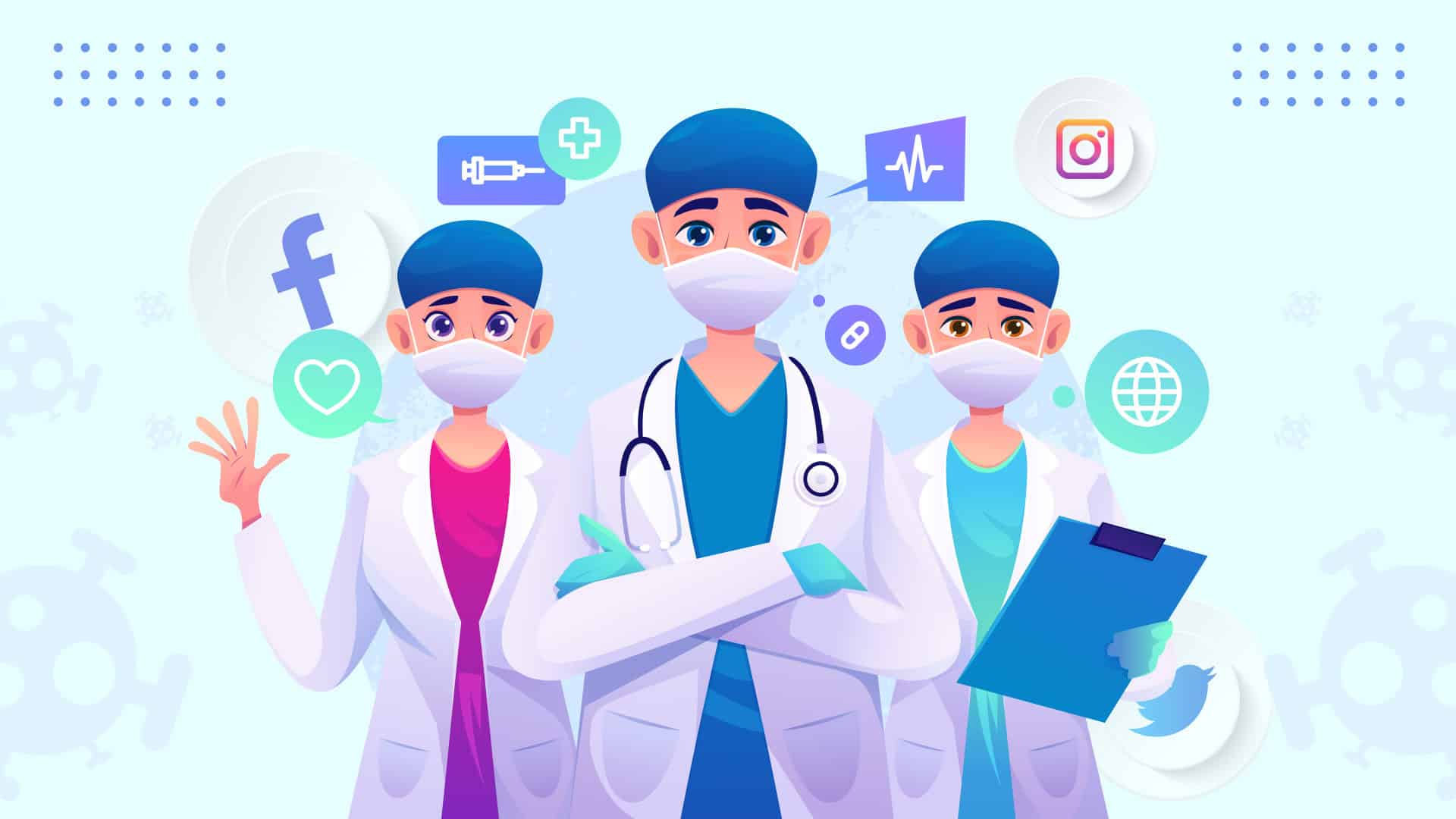The Future of Medicine: Trends in Technology and How They Impact the Role of Doctors

The practice of medicine is undergoing a profound transformation, driven by the rapid advancement of technology. From artificial intelligence (AI) and telemedicine to genomics and robotics, emerging innovations are reshaping the healthcare landscape and redefining the role of doctors. As we look to the future, it is essential for medical professionals to understand these technological trends and how they will impact the way medicine is delivered and the expectations placed on physicians.

In this comprehensive blog post, we will explore the key technological advancements that are poised to revolutionise the medical field, and examine how they will influence the responsibilities, workflow, and overall function of doctors in the years to come.
The Rise of Artificial Intelligence in Healthcare
One of the most significant technological developments impacting the future of medicine is the rapid advancement of artificial intelligence (AI) and machine learning. AI-powered systems are already being leveraged to assist doctors in a variety of ways, from early disease detection and diagnosis to treatment planning and outcome prediction.
AI algorithms trained on vast datasets of medical records, imaging scans, and clinical research can often outperform human experts in tasks such as identifying subtle patterns indicative of certain conditions. This augmented diagnostic capability can lead to earlier intervention, improved patient outcomes, and a reduction in unnecessary tests and procedures.
Moreover, AI-driven clinical decision support systems are empowering doctors to make more informed, data-driven treatment decisions. By analysing a patient’s unique medical history, genetic profile, and real-time health data, these systems can provide personalised recommendations for medications, therapies, and lifestyle adjustments. This level of hyper-personalisation is poised to become the new standard of care, as it enables doctors to deliver more precise, effective, and efficient treatment plans.
As AI continues to advance, we can expect to see an even greater integration of these technologies into the daily workflow of physicians. Doctors will increasingly rely on AI assistants to streamline administrative tasks, automate documentation, and free up time for direct patient care. This transition will require physicians to develop new skills in interpreting AI-generated insights and collaborating effectively with these intelligent systems.
The Expansion of Telemedicine and Remote Care
Another crucial technological shift impacting the medical field is the rapid growth of telemedicine and remote healthcare delivery. The COVID-19 pandemic has significantly accelerated the adoption of virtual care, as patients and providers alike have sought to maintain continuity of care while minimising in-person interactions.
Telemedicine platforms and mobile health apps now allow doctors to conduct virtual consultations, monitor patients remotely, and provide ongoing support through secure video, audio, and messaging channels. This expanded access to care can be particularly beneficial for patients in rural or underserved areas, as well as those with mobility challenges or chronic conditions that require frequent check-ins.
As telemedicine continues to evolve, doctors will need to adapt their clinical skills and communication strategies to deliver high-quality care through digital channels. This may involve mastering the use of remote patient monitoring devices, optimising virtual exam techniques, and developing effective ways to build trust and rapport with patients they’ve never met in person.
Moreover, the integration of telemedicine with other healthcare technologies, such as electronic medical records (EMRs) and AI-powered decision support tools, will enable doctors to provide a more seamless, coordinated, and data-driven remote care experience.
Advancements in Genomics and Personalised Medicine
The field of genomics is another area where technological breakthroughs are poised to transform the practice of medicine. The rapid decline in the cost of genome sequencing, coupled with advancements in data analysis and bioinformatics, is ushering in a new era of personalised, precision healthcare.
By leveraging a patient’s genetic profile, doctors can gain valuable insights into their individual risk factors, predispositions to certain diseases, and potential responses to various treatments. This knowledge can inform more targeted preventive strategies, earlier detection of conditions, and the selection of therapies that are tailored to the patient’s unique genetic makeup.
As genomic testing becomes more widely adopted, doctors will need to develop expertise in interpreting genetic data, communicating complex genomic information to patients, and collaborating with genetic counsellors and other specialists to develop comprehensive, personalised treatment plans.
Moreover, the integration of genomic data with other healthcare technologies, such as electronic medical records and AI-driven decision support systems, will enable doctors to make more informed, data-driven decisions that prioritize the individual needs and characteristics of each patient.
The Rise of Robotics and Automated Procedures
Advancements in robotics and automation are also poised to transform the medical field, with the potential to enhance the precision, accuracy, and efficiency of certain surgical and clinical procedures.
Robotic-assisted surgery, for example, allows doctors to perform complex operations with greater dexterity, control, and visualisation, thantraditional manual techniques. These systems can enhance surgical precision, reduce the risk of complications, and even enable minimally invasive procedures that result in faster patient recovery times.
Beyond surgery, automated technologies are also being integrated into other areas of healthcare, such as medication dispensing, laboratory testing, and patient monitoring. These automated systems can help to reduce human error, improve workflow efficiency, and free up medical staff to focus on more complex, high-level tasks.
As robotic and automated technologies become more prevalent in healthcare settings, doctors will need to develop new skills in operating and troubleshooting these systems, as well as in collaborating with the technicians and engineers who maintain and optimise them.
The Evolving Role of the Modern Physician
As these technological advancements continue to reshape the medical landscape, the role of the modern physician is also undergoing a profound transformation. Doctors will need to adapt their skills, knowledge, and workflows to effectively leverage these new tools and technologies, while ensuring that the human-centred, patient-focused aspects of care remain at the forefront.
Some of the key ways in which the role of the doctor is evolving include:
- Becoming Technology-Savvy: Doctors will need to become more proficient in understanding, utilising, and interpreting the insights generated by AI, telemedicine, genomics, and robotic systems. This will require ongoing professional development, collaboration with IT and data science teams, and a willingness to embrace technological change.
- Enhancing Data-Driven Decision-Making: With the increasing availability of healthcare data and the integration of advanced analytics tools, doctors will be expected to make more informed, evidence-based decisions that prioritise personalised, patient-centric care.
- Fostering Human-Centred Care: Despite the rise of technology, the fundamental role of the doctor as a trusted, empathetic, and compassionate caregiver will remain essential. Doctors will need to strike a balance between leveraging technological advancements and maintaining the human touch that is so vital to the patient-provider relationship.
- Expanding Collaborative Partnerships: As the healthcare ecosystem becomes more complex and interdisciplinary, doctors will need to work more closely with a diverse range of specialists, including geneticists, data scientists, IT professionals, and robotics engineers, to deliver comprehensive, coordinated care.
- Embracing Lifelong Learning: The pace of technological change in the medical field will require doctors to continuously update their skills, knowledge, and clinical practices. Ongoing professional development, continuing education, and a willingness to adapt will be essential for doctors to stay at the forefront of their field.
Conclusion
The future of medicine is undoubtedly being shaped by the rapid advancement of technology, from artificial intelligence and telemedicine to genomics and robotics. As these innovations continue to transform the healthcare landscape, the role of the modern physician is also evolving, requiring doctors to develop new skills, knowledge, and workflows to effectively leverage these cutting-edge tools and deliver the highest quality of patient care.
By embracing these technological trends and adapting their clinical practices accordingly, doctors can position themselves at the forefront of this exciting and rapidly-changing field, ensuring that they remain essential partners in the pursuit of better health outcomes for patients and communities around the world.



